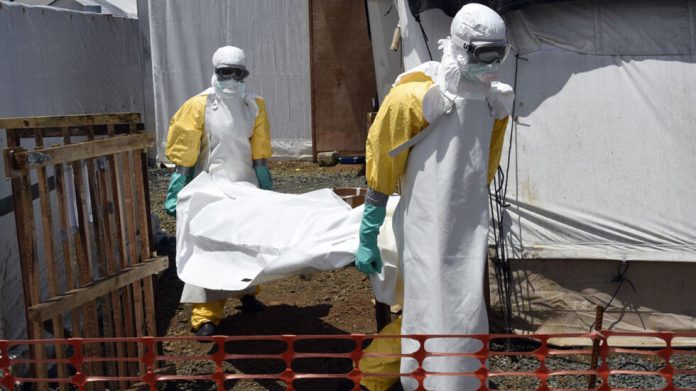The health ministry of the Democratic Republic of the Congo has reported that a new Ebola outbreak has killed at least 15 individuals. According to the ministry, the virus was found in a 34-year-old pregnant woman who was hospitalized last month after exhibiting symptoms like a high temperature and frequent vomiting.
She passed away from multiple organ failure a few hours later.
This will be the 16th epidemic of the fatal virus in the large central African state, which is plagued by violence in the east and has inadequate health services.
The ministry reported that 28 suspected cases were reported in the most recent incident, which occurred in central Kasai province.
Prompt handwashing and social distance in high-risk regions are two preventive measures that officials have called for rigorous adherence to.
Officials reported that tests had revealed the Zaire form of Ebola, an uncommon but frequently fatal illness.
Essential Information Regarding Ebola
“Acting with determination to rapidly halt the spread of the virus and protect communities” is what the World Health Organization (WHO) declared it was doing.
the report states that 15 people had perished, including four medical personnel.
“Case numbers are likely to increase as the transmission is ongoing. Response teams and local teams will work to find the people who may be infected and need to receive care, to ensure everyone is protected as quickly as possible,” WHO emphasised in a statement.
“Effective to protect against this type of Ebola,” the international health organization claimed, DR Congo has a “stockpile of treatments” that included 2,000 doses of the Ervebo vaccine.
Three years ago, the latest Ebola outbreak in the Democratic Republic of the Congo killed six individuals.
An even deadlier outbreak that killed over 2,000 people occurred in 2018–20.
The virus was initially discovered in 1976 close to the Ebola River in what is now the Democratic Republic of the Congo. It is believed to have started in fruit bats.
When someone with Ebola comes into direct touch with another person’s blood, vomit, feces, or body fluids through damaged skin, the mouth, or the nose, they become infected.



























